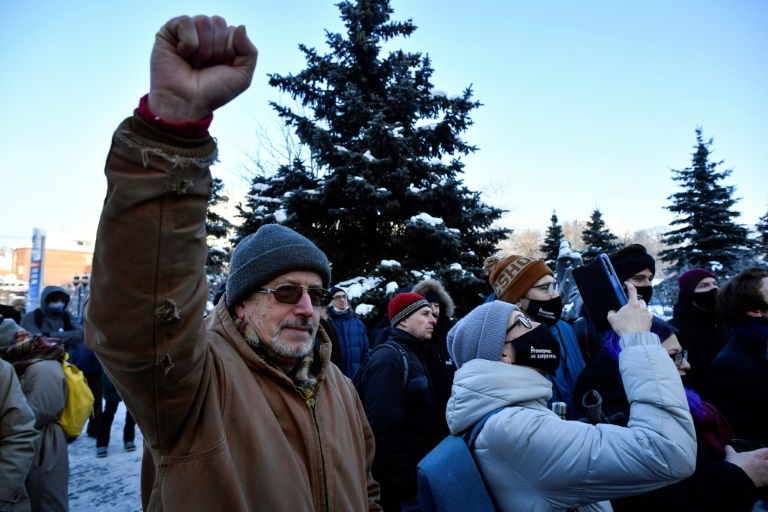Russia on Wednesday sparked a second straight day of international outrage after courts ordered the country’s most prominent rights group, Memorial, to close.
The move triggered a swift reaction from the European Court of Human Rights, which urged Russia to suspend the shutdown while it examined the case.
A day earlier on Tuesday, the country’s Supreme Court ordered the dissolution of Memorial International, the group’s central structure which chronicles Stalin-era purges and maintains its extensive archives in Moscow.
That ruling was condemned by US Secretary of State Antony Blinken and EU foreign policy chief Josep Borell, at a time when tensions are already high between Russia and NATO over the Ukraine conflict.
Judge Mikhail Kazakov then on Wednesday also ordered the dissolution of Memorial’s Human Rights Centre, which campaigns against contemporary rights abuses in Russia, at the request of prosecutors.
The ruling was denounced by both the United Nations and Britain, which accused Moscow of stifling freedom of expression.
The rulings cap a year that began with the jailing of President Vladimir Putin’s top critic Alexei Navalny and signal the end of an era in Russia’s post-Soviet democratisation process, which began 30 years ago this month.
Prosecutors accused Memorial’s rights centre of failing to use on its publications the “foreign agent” label, which denotes organisations that receive funds from overseas, and allegedly justifying terrorism and extremism.
During Wednesday’s hearing at the Moscow City Court, a prosecutor charged that it was actually Memorial that violated the rights and freedoms of Russians and cited an alleged lack of accounting transparency.
After the ruling, several dozen supporters applauded Memorial’s lawyers outside of the courthouse in freezing temperatures.
“We had no illusions,” said lawyer Ilya Novikov.
“But it is very important that this ship is sinking with a raised flag.”
Alexander Cherkasov, head of Memorial’s rights centre, branded the court decision “political” and said the group will continue working “somehow”.
Supporter Yelena Ponomaryova described the ruling as the “collapse of the entire judicial system”.
“It’s a shameful decision,” she said.
– ‘Chilling blow’ –
Memorial, Russia’s most prominent rights organisation, was founded in 1989 by Soviet dissidents including Nobel Peace Prize laureate Andrei Sakharov.
Memorial’s rights centre has campaigned for the rights of political prisoners, migrants and other disadvantaged groups, and highlighted abuses, especially in the turbulent North Caucasus region that includes Chechnya.
The centre has also compiled a list of political prisoners that includes Navalny and members of regional minorities outlawed in Russia including the Jehovah’s Witnesses.
“Memorial is not an organisation, it is not even a social movement,” Memorial International said in a statement.
“Memorial is the need of the citizens of Russia to know the truth about its tragic past, about the fate of many millions of people.”
On Tuesday, prosecutors charged that Memorial International “creates a false image of the USSR as a terrorist state and denigrates the memory of World War II”.
Marie Struthers, Eastern Europe and Central Asia director at Amnesty International, said the accusations against Memorial were “bogus” and called its closure “heartless”.
UK Foreign Secretary Liz Truss tweeted that she was “deeply concerned” by rulings this week to ban the group.
“Its closure is another chilling blow to freedom of expression in Russia,” she said.
The UN Human Rights Office said it deeply regretted the rulings, saying they further weakened Russia’s “dwindling human rights community”.
The move has come as no surprise to the group after Putin himself accused it of advocating for “terrorist and extremist organisations”.
Political observers say that the charges of extremism and terrorism have been used by authorities to punish Putin critics.
Tuesday’s court ruling against Memorial International had sparked an international backlash.
“The people of Russia –- and the memory of the millions who suffered from Soviet-era repression –- deserve better,” said Blinken.
Borrell tweeted: “Critical looks on their past are essential for the healthy development and progress of societies.”











